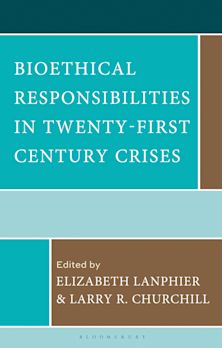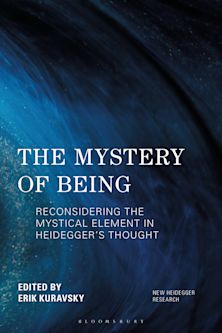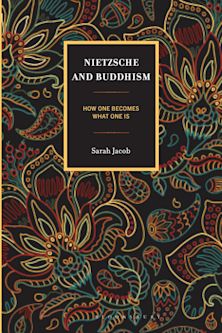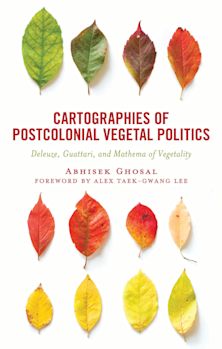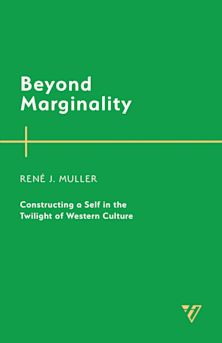- Home
- ACADEMIC
- Philosophy
- Philosophy - Other
- Feminist Explorations of Paul Ricoeur's Philosophy
Feminist Explorations of Paul Ricoeur's Philosophy
Annemie Halsema (Anthology Editor) , Fernanda Henriques (Anthology Editor) , Morny Joy (Contributor) , Pamela Sue Anderson (Contributor) , Stephanie N. Arel (Contributor) , Annlaug Bjørsnøs (Contributor) , Scott Davidson (Contributor) , Maria del Guadalupe Davidson (Contributor) , Marjolaine Deschênes (Contributor) , Carlos A. Garduño Comparán (Contributor) , Gonçalo Marcelo (Contributor) , Alison Scott-Baumann (Contributor) , Damien Tissot (Contributor) , Teresa Maria Leal de Assunção Martinho Toldy (Contributor)
Feminist Explorations of Paul Ricoeur's Philosophy
Annemie Halsema (Anthology Editor) , Fernanda Henriques (Anthology Editor) , Morny Joy (Contributor) , Pamela Sue Anderson (Contributor) , Stephanie N. Arel (Contributor) , Annlaug Bjørsnøs (Contributor) , Scott Davidson (Contributor) , Maria del Guadalupe Davidson (Contributor) , Marjolaine Deschênes (Contributor) , Carlos A. Garduño Comparán (Contributor) , Gonçalo Marcelo (Contributor) , Alison Scott-Baumann (Contributor) , Damien Tissot (Contributor) , Teresa Maria Leal de Assunção Martinho Toldy (Contributor)
You must sign in to add this item to your wishlist. Please sign in or create an account
Description
This book for the first time brings together considerations upon the feminine in relation to Paul Ricœur’s thinking. The collection of renowned scholars who have published extensively on Ricoeur and promising younger scholars together shows the rich potential of his thought for feminist theory, without failing to critically scrutinize it and to show its limitations with respect to thinking gender differences.
In the first part, “Ricœur, Women, and Gender,” Ricœur’s work is taken as the starting point for the reflection upon the position of women and the feminine, and for rethinking the notion of universalism. In the second part, “Ricœur in Dialogue,”his work is related to feminist thinkers such as Simone de Beauvoir, Judith Butler, and Nancy Fraser and to the work of artist Kara Walker. These dialogues aim at thinking through socially relevant notions such as discourse, recognition, and justice. In the third part, “Ricœur and Feminist Theology,” Ricœurian notions and ideas are the starting point for new perspectives upon feminist theology.
The insights developed in this book will be of particular value to students and scholars of Ricœur, feminist theory, and the limits of hermeneutics and phenomenology.
Table of Contents
Annemie Halsema and Fernanda Henriques
Part I: Ricœur, Women and Gender
Chapter 1. Ricœur, Women, and the Journey to Recognition
Morny Joy
Chapter 2. Speak to Silence and Identify Absence on Campus: Sister Prudence and Paul Ricœur on the Negated Woman Question
Alison Scott-Baumann
Chapter 3. The Metaphor of Gender: Recognition and Dignity
Carlos A. Garduño Comparán
Chapter 4. Transnational Feminist Solidarities and Cosmopolitanism: in Search of a New Concept of the Universal
Damien Tissot
Part II: Ricœur in Dialogue
Chapter 5. “The Accountable Ipse.” The Ethical Self in Ricœur’s Hermeneutics and Butler’s Poststructuralism
Annemie Halsema
Chapter 6. Paul Ricœur and Judith Butler on the Reference and the Renewal of Discourses
Marjolaine Deschênes
Chapter 7. Reshaping Justice: Between Nancy Fraser’s Feminist Philosophy and Paul Ricœur’s Philosophical Anthropology
Gonçalo Marcelo
Chapter 8. Inspiring New Feminist Perspectives: Reading Paul Ricœur with Simone de Beauvoir
Annlaug Bjørsnøs
Chapter 9. Hermeneutics of A Subtlety: Paul Ricœur, Kara Walker, and Intersectional Hermeneutics
Scott Davidson and Maria del Guadalupe Davidson
Part 3: Ricœur and Feminist Theology
Chapter 10. Ricœur in Dialogue with Feminist Philosophy of Religion. Hermeneutic Hospitality in Contemporary Practice
Pamela Sue Anderson
Chapter 11. Paul Ricœur, Mary Daly, Attestation and the Dis-covery of Feminine Religious Symbols
Stephanie N. Arel
Chapter 12. The Contribution of Ricœur’s Hermeneutics to a Feminist Perspective on Postcolonial Theology
Fernanda Henriques and Teresa Martinho Toldy
List of Contributors
Product details
| Published | 19 May 2016 |
|---|---|
| Format | Ebook (Epub & Mobi) |
| Edition | 1st |
| Extent | 284 |
| ISBN | 9781498513692 |
| Imprint | Lexington Books |
| Series | Studies in the Thought of Paul Ricoeur |
| Publisher | Bloomsbury Publishing |
About the contributors
Reviews
-
Feminist Explorations of Paul Ricoeur's Philosophy gathers contributions from both world-renowned scholars of Ricoeur's thought and leading feminist thinkers. It is a provocative and ambitious book that both locates in Ricoeur's philosophical project voices not commonly associated with his work and demonstrates their significance. Halsema and Henriques provide Ricoeur scholars and philosophy students in general with a multi-perspective view on how far the conflict of interpretations can go without losing sight of the central tenets of Ricoeur's phenomenological hermeneutics.... [I]t will certainly provide those with a philosophical background with a subtler grasp of topics and arguments the neutrality of which is often, wrongly, taken for granted.
Hypatia: A Journal of Feminist Philosophy
-
This book provides an implicit answer to the main dilemma of Feminist theories facing philosophical traditions. These didn’t pay enough attention to discrimination of women and to inequalities; should critical approaches prevail over a close exploration of classic and contemporary texts? How could we re-examine the philosophical canon from gender perspective? In this book, multidisciplinary and multinational, the authors analyze Hermeneutics and, in particular, P. Ricoeurs’s contribution; they explore an alternative version of some practical issues, such as ethical capacities, the quest for recognition, cosmopolitanism, hospitality, and universal principles like justice.
The book brings together updated interpretations of P.Ricoeur’s theory and gender accounts of current and complex questions. It is organized into three sections that draw close hermeneutic Phenomenology to other philosophical voices, from S. de Beauvoir to J. Butler and N. Fraser. It also demonstrates that this dialogue or appropriation was possible and, now, it could continue.M.T. López de la Vieja, Universidad de Salamanca
-
In Feminist Explorations of Paul Ricœur's Philosophy, fourteen younger philosophers and feminists lead the mutually productive confrontation between Paul Ricœur’s hermeneutics and feminist thinking. The editors point out that though Ricœur himself did not pay attention to questions pertaining to gender, the articles in this volume show that it not only makes sense to approach his philosophical thought from a feminist point of view, but also that something philosophically new results of this exploration of his thought. The result is very gratifying. What would have pleased Ricœur more, he who believed when reading the philosophers of the past, ‘in this strange form of contemporaneity, a sort of conversation with the dead yet conducted by the living’?
Catherine Goldenstein, Scientific Counsil and Editorial Committee, Fonds Ricœur
-
Even though Ricœur himself never engaged a dialogue with feminist thinkers, this important collection of essays, edited by Annemie Halsema and Fernanda Henriques, demonstrates, in a very convincing way, the rich potential of his thought for feminist theory. For the first time, Ricœur's hermeneutics is not only critically approached from a feminist point of view, but his thought proves to be an extraordinary laboratory for the renewal of the concepts and arguments of feminist theory. Thanks to a comparative and fruitful analysis of Ricœur's critical hermeneutics and the great names of feminist thinking (Beauvoir, Fraser, Butler, etc.), the various contributors show the interest of this philosophy for feminist reflection, both in regard to the method of thinking (dialogue, conflict of interpretations, creativity of language) and in regard to the topics (the self, identity, justice, recognition, etc.) discussed by the French philosopher.
Jean-Luc Amalric, Etudes Ricœuriennes/Ricœur Studies













